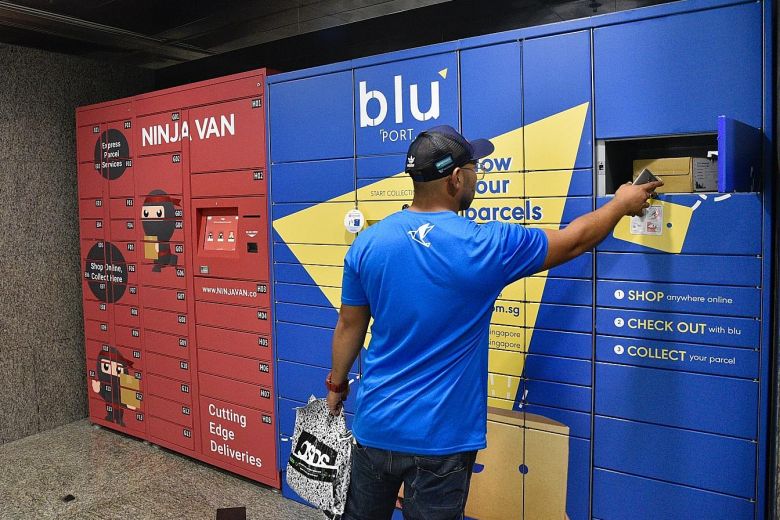I delivered this speech on 5 Apr 2021 during the Parliamentary debate on the Postal Services (Amendment) Bill.
Mr Speaker,
I can see the need for more parcel lockers to be set up near housing estates. Sometimes deliveries get delayed because residents are not at home to receive the parcel or they don’t hear the courier at the door. This would require rescheduling another delivery date. I also remember occasions when I would receive a delivery note in my mailbox to pick up a package from a POPstation, which is a 30 minute round trip by bus and foot from my home, when I had made it a point to be home when the original delivery was made.
The pandemic, ironically, seems to have eased this problem, because couriers now simply leave the package outside the door in the name of “contactless delivery”, to prevent the spread of the virus. However, I worry that these delivery issues may return once safe management measures ease. In any case, especially in public housing estates, leaving packages unattended at the door risks parcel theft. I therefore support the plans to situate more parcel lockers near housing estates.
However, I have several queries which I hope the SMS will address. These cover the effect of the creation of a public parcel locker network (Network) on market competition and innovation, and the coverage of parcel lockers in all housing estates.
Market competition
First, on market competition. While I welcome the creation of the Network, I would like more clarity on the role of Pick Network Pte Ltd in the existing ecosystem. Pick is a wholly-owned subsidiary of IMDA, which is a government statutory board.
SingPost already has POPstations and Blu World Pte Ltd has a network of blu lockers. They are part of an existing parcel locker network, the Locker Alliance, which has already set up parcel lockers in various locations across Singapore. What was the reason why IMDA didn’t contract these private sector players to provide more public parcel lockers near housing estates? They already have the experience of running parcel lockers and could take on the investment risk and bear the cost of expanding their network.
Is Pick’s mandate to fulfil a need that is distinct and complementary to the services already being provided by the private parcel locker providers, or will it be competing with them? If competition is part of its mandate, will it be contravening the “Yellow Pages” rule? This rule dictates that government agencies should exit from market segments which already have active private sector players. I note that the SMS said that it is not the Bill’s intent for Pick to compete with Delivery Service Partners (DSP), but does this non-competition extend to providers of parcel lockers?
Going back to first principles, I would also like to find out more information about the process by which Pick was created and contracted to run the Network. Was there a public tender for the deployment and operation of a public locker network, which Pick eventually won? How long will the initial contract be for? Are there plans for a subsequent tender in which another public postal licensee or licensees can participate in?
Is Pick expected to be profitable in the future? If not, how much has IMDA spent and how much will it be budgeting every year to subsidise the operations of Pick?
Coverage of parcel lockers
Next, I have some questions for the SMS about the location and coverage of the Network lockers.
While residents living in HDB estates will be served by the Network, how will the Network be implemented in condominiums and landed estates, if at all?
Will parcel lockers be set up in condos or in public spaces near condos? Given that 16% of resident households live in condos, we should strive to ensure coverage of this segment. Another 5% of residents live in landed housing. Will they be served by public parcel lockers?
Maintenance and cleanliness of lockers
I understand that Pick will be in charge of the maintenance of these lockers. Given the Covid-19 situation, Pick should arrange for their own disinfection and cleaning of the high-touch surfaces of these lockers regularly.
Also, I hope that Pick clearly indicates their customer support contacts on their lockers and makes it convenient for customers to get in touch with them. This is so that town councils or MPs don’t get calls from members of the public to fix malfunctioning lockers.
There may also be certain individuals who are heavy users of delivery services, for example people who run small redistribution businesses from their homes. What measures are in place to prevent overuse by these individuals who could end up monopolising the limited slots?
Conclusion
Mr Speaker, the public parcel locker network should fill in the gaps which the private sector is unable to fill, rather than duplicate their coverage. It should seek to drive innovation in the sector. For example, perhaps in the future we could see the creation of cold lockers to facilitate the delivery of groceries and foodstuffs from supermarkets, or heated lockers for food deliveries. Locker operators could also consider providing dual functions for their lockers, for example, as receptacles for returned items, or even for depositing electronic waste, given that existing e-waste bins are even less accessible than private parcel lockers.
The creation of the Network should ultimately drive the industry forward and serve the public interest — given that public funds have already been used towards its creation. ROI must come in the form of more convenient and affordable parcel pick-ups for consumers, not just profits for a select few players, whether publicly- or privately-owned.
Image credit: blu.com.sg
